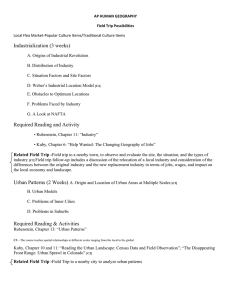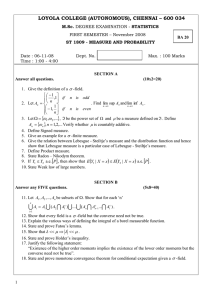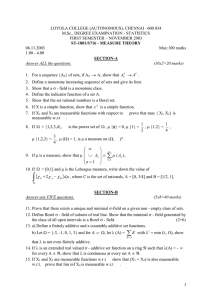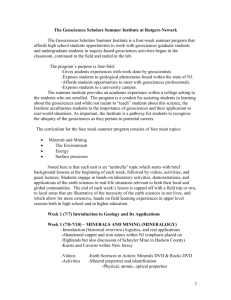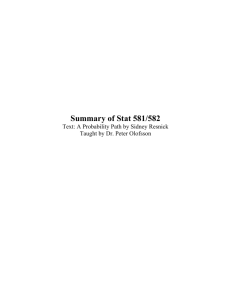PART 4: Entrustable Professional Activities Progress
advertisement
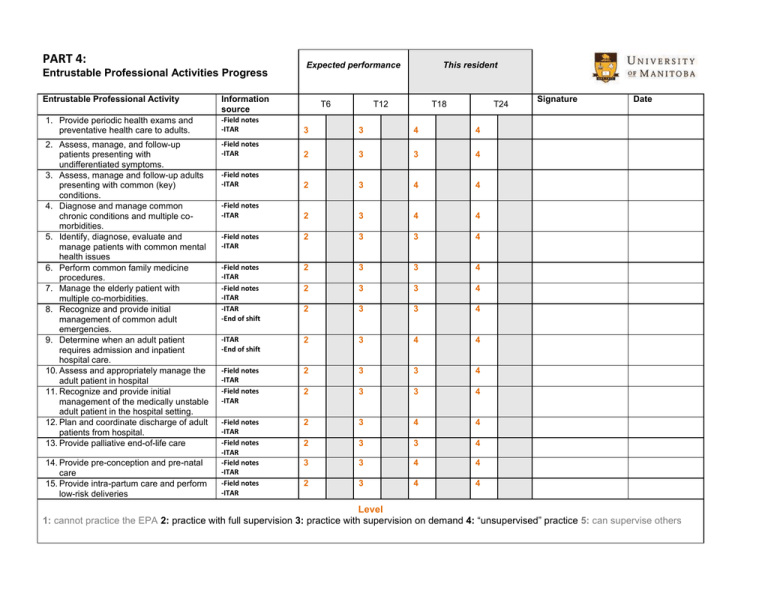
PART 4: Entrustable Professional Activities Progress Entrustable Professional Activity Expected performance Information source T6 This resident T12 T18 T24 1. Provide periodic health exams and preventative health care to adults. -Field notes -ITAR 3 3 4 4 2. Assess, manage, and follow-up patients presenting with undifferentiated symptoms. 3. Assess, manage and follow-up adults presenting with common (key) conditions. 4. Diagnose and manage common chronic conditions and multiple comorbidities. 5. Identify, diagnose, evaluate and manage patients with common mental health issues 6. Perform common family medicine procedures. 7. Manage the elderly patient with multiple co-morbidities. 8. Recognize and provide initial management of common adult emergencies. 9. Determine when an adult patient requires admission and inpatient hospital care. 10. Assess and appropriately manage the adult patient in hospital 11. Recognize and provide initial management of the medically unstable adult patient in the hospital setting. 12. Plan and coordinate discharge of adult patients from hospital. 13. Provide palliative end-of-life care -Field notes -ITAR 2 3 3 4 -Field notes -ITAR 2 3 4 4 -Field notes -ITAR 2 3 4 4 -Field notes -ITAR 2 3 3 4 -Field notes -ITAR -Field notes -ITAR -ITAR -End of shift 2 3 3 4 2 3 3 4 2 3 3 4 -ITAR -End of shift 2 3 4 4 -Field notes -ITAR -Field notes -ITAR 2 3 3 4 2 3 3 4 -Field notes -ITAR -Field notes -ITAR -Field notes -ITAR -Field notes -ITAR 2 3 4 4 2 3 3 4 3 3 4 4 2 3 4 4 14. Provide pre-conception and pre-natal care 15. Provide intra-partum care and perform low-risk deliveries Signature Date Level 1: cannot practice the EPA 2: practice with full supervision 3: practice with supervision on demand 4: “unsupervised” practice 5: can supervise others -Field notes -ITAR -Field notes -ITAR -Field notes -ITAR -Field notes -ITAR 2 3 3 4 2 3 3 4 2 3 3 4 3 3 4 4 2 3 4 4 -ITAR -End of shift 2 3 3 4 -ITAR -End of shift 2 3 3 4 -ITAR 2 3 4 4 -ITAR 2 3 3 4 -ITAR 2 3 3 4 -Field notes -ITAR 2 3 4 4 27. Facilitate family and interdisciplinary meetings 28. Optimize the quality and safety of health care through utilization of best practices and application of QI 29. Provide care to vulnerable and underserved populations. -Field notes -ITAR Progress Review 2 2 3 4 2 2 3 4 -Field notes -ITAR 2 2 3 4 30. Provide care to First Nation, Inuit and Métis people. -Field notes -ITAR 2 2 3 4 16. Recognize and manage common intrapartum emergencies 17. Provide postpartum care 18. Provide family medicine-centered care to newborns in their first weeks of life. 19. Provide periodic health exams and preventative care to infants, children and adolescents. 20. Assess, manage and follow-up infants, children and adolescents presenting with common (key) conditions. 21. Recognize and provide initial management of common pediatric emergencies 22. Determine when a child or adolescent requires admission and inpatient hospital care 23. Assess and appropriately manage the child or adolescent patient in hospital. 24. Recognize and provide initial management of the medically unstable pediatric patient in the hospital setting. 25. Plan and coordinate discharge of the child or adolescent from hospital 26. Provide expert advice and obtain consultation for patients -Field notes -ITAR Level 1: cannot practice the EPA 2: practice with full supervision 3: practice with supervision on demand 4: “unsupervised” practice 5: can supervise others
